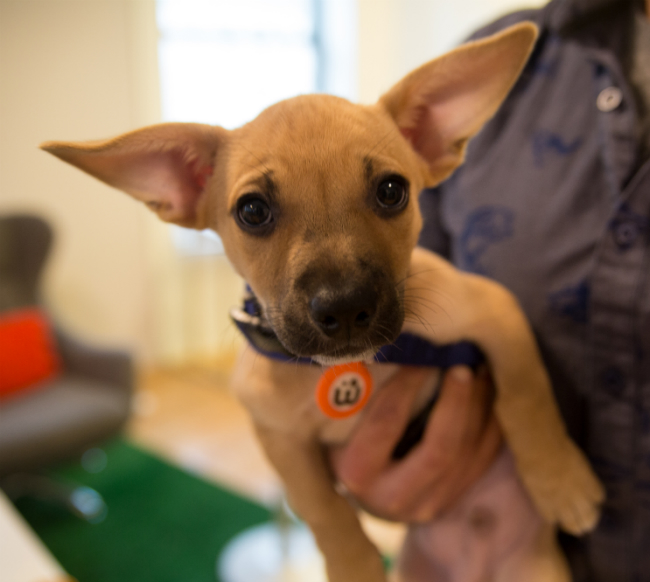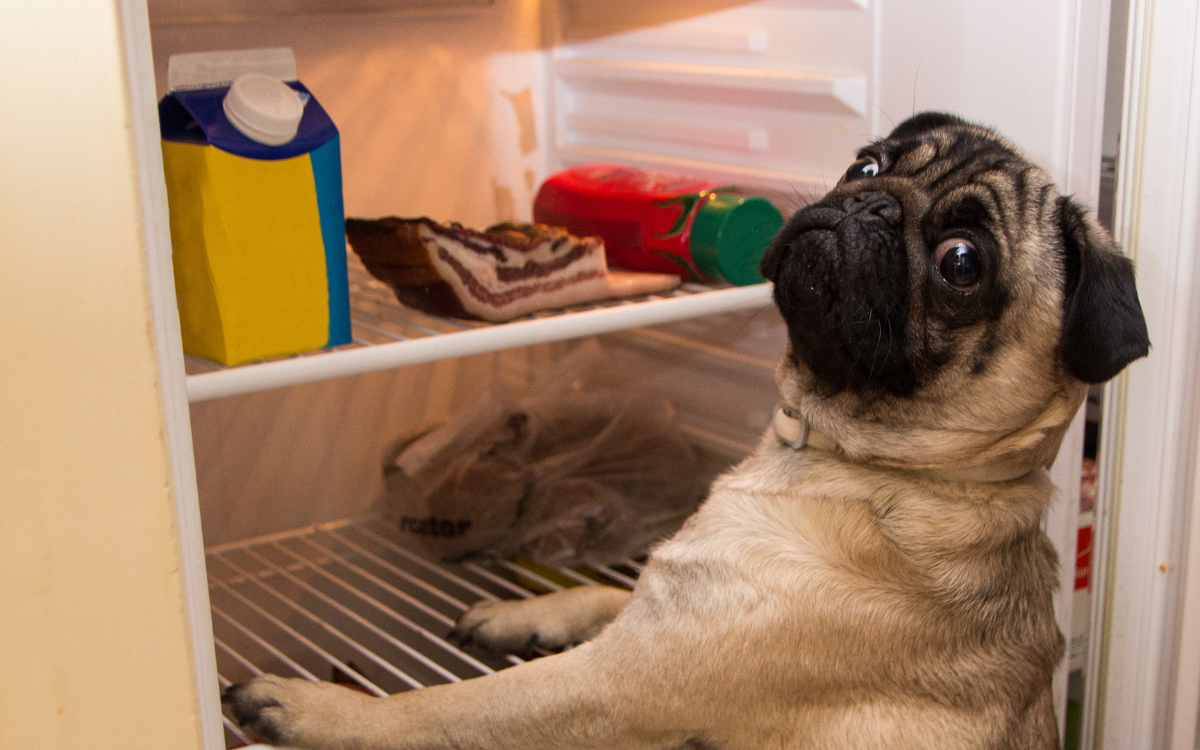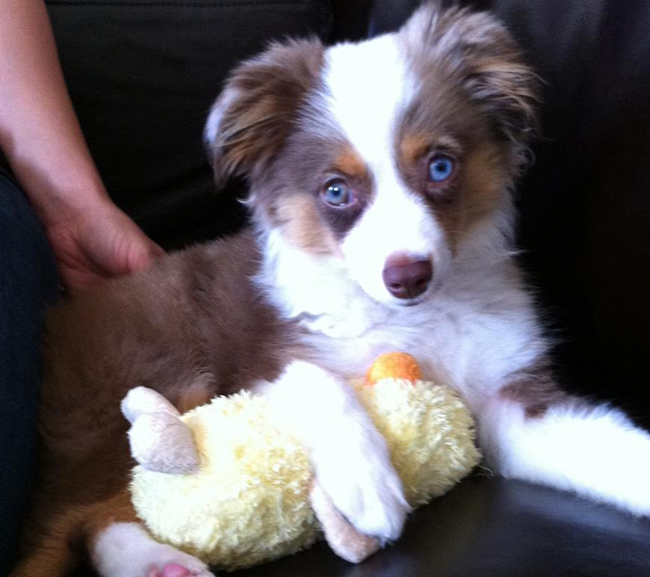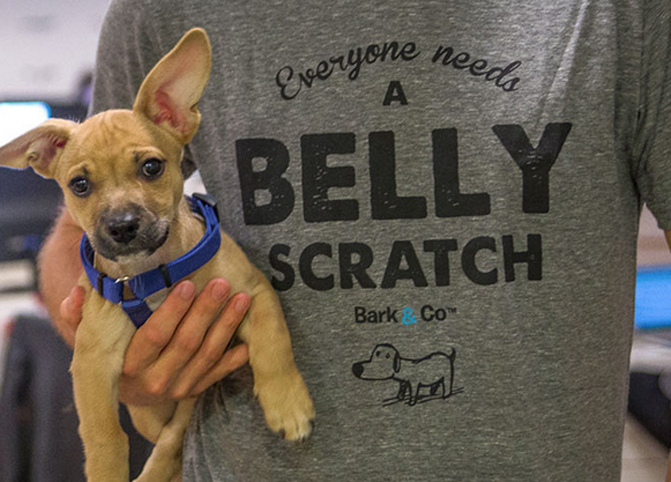If you’re Googling kennel cough, it’s probably because your dog has been hacking or coughing. Maybe it sounds like something they’re trying to clear something stuck in their throat, or perhaps it resembles a very loud goose honking. It’s entirely possible that no one in the house is sleeping because the dog is coughing ALL night long!
So What Is Kennel Cough?
Kennel cough develops because of an infection of the respiratory tract by the bacteria Bordetella bronchiseptica1-3. Exposure to exhaled breath, oral or nasal secretions, or any objects that have come in contact with those things can result in infection1-3.
Kennel cough is highly contagious. Dogs contract it most commonly, but vets also report the disease in cats, rabbits, pigs, and even people1. In humans, Bordetella bronchiseptica is an opportunistic infection, meaning it affects those with a weak immune system (like infants or those who are immunocompromised)1-2.


Other names for kennel cough include:
- Bordetellosis1-3
- CIRD (canine infectious respiratory disease)2-3
- Canine infectious tracheobronchitis1-3
- Canine respiratory disease complex1,3
What Are Symptoms of Kennel Cough?
A dry “goose honk” cough characterizes an “uncomplicated” Bordetella bronchiseptica infection, meaning no other infections exist at the same time. It occurs shortly after interacting with dogs from outside the household—around 3–10 days1-3.
Dog parents often describe the cough as hacking, retching, or gagging1-3, and eye and nasal discharge is possible, but less common1,3. Dogs who carry the bacteria DO NOT have to have been coughing or symptomatic to spread kennel cough2, which sometimes makes it tough to spot in situations where it spreads easily.
Where Do Dogs Get Kennel Cough?
Kennel cough infections are super common where large group interactions occur, including at:
- Dog kennels1,3
- Grooming facilities
- Dog parks3
- Doggy daycares3
- Dog shows1,3
- Animal shelters or rescues1,3


Additional Kennel Cough Symptoms
Dogs may develop more severe symptoms as a result of coinfections (multiple infections at the same time), such as lethargy, fever, lack of appetite, difficulty breathing, or even death1-3. More serious symptoms are typically associated with pneumonia, while severe complications are more common in puppies and dogs with underlying medical conditions2-3.
Other infections can occur at the same time as kennel cough, including:
- Canine parainfluenza (highly contagious respiratory virus)1-2
- Canine influenza virus (also a respiratory virus, but different from parainfluenza)2
- Canine adenovirus-2 (related to the hepatitis virus)1-2
- Canine distemper (disease that affects the respiratory, gastrointestinal, and nervous systems)1
- Mycoplasma species (groups of small bacteria that cause respiratory symptoms)1
- Streptococcus species (bacterial infection)1
I Think My Dog Has Kennel Cough—What Do I Do?
First, isolate your dog from other dogs and contact your dog’s veterinarian. They will be able to decide what (if any) treatment works best. Fortunately, if your dog has kennel cough without other infections, it usually goes away on its own2-3.
However, because coinfections or opportunistic infections are common, vets often prescribe antibiotics to prevent them from weaseling their way in2-3. If your vet prescribes antibiotics to treat the infection, your dog may need to be on them for up to 30 days2-3 to ensure the infection clears completely.
Supportive care medications like cough suppressants or anti-inflammatories can be used, though they won’t help clear the infection quicker or prevent another infection from occurring1-3.
Dogs that have had kennel cough can shed, and therefore spread, kennel cough for 3 or more months after they’ve recovered, but likely won’t “catch” it again for up to 6 months1.
How Do I Prevent Kennel Cough?
Vaccinating your dog is the best way to prevent them from getting kennel cough. Studies show intranasal (up the nose) vaccinations more effectively prevent infection and reduce spread of the disease2-3. Bottom line—all forms of vaccinating, including by nose, mouth, or injection, reduce severity of symptoms and make your dog less sick2-3.
To prevent infection spread by food bowls, toys, kennels, and other objects, make sure to thoroughly clean all items and improve ventilation3. Household bleach at 1:32 dilution (bleach:water) does a pretty great job3.
My dog got the vaccine. My vet records say it’s good for one year, but doggy daycare requires it every 6 months. Why?
In high exposure situations (like the non-stop party that is doggy daycare), it’s appropriate and safe to booster at 6 months to prevent outbreaks in large groups2-3. Veterinarians often recommend the longer timeline because studies support this, and not all dogs have exposure to large group settings2-3.
Colleen Ferriman, DVM, is a canine and feline health, wellness, and illness management advocate. She has a combined 10 years of experience in clinical medicine, education, and educational content development. Colleen graduated from Colorado State University as a Doctor of Veterinary Medicine, has worked as a general practitioner, and has contributed to the development of veterinary educational tools. She is also a member of the American Veterinary Medical Association and American Academy of Veterinary Pharmacology and Therapeutics.
Sources:
1Cote E: Borreliosis. Clinical Veterinary Advisor Dogs and Cats, 2nd ed. St. Louis, Elsevier Mosby 2011 pp. 146-147.
2Ford RB: Canine Infectious Disease Update. ABVP 2010.
3Rathrock K: Bordetellosis (Zoonotic) (Canine). VINcyclopedia of Diseases 2019.






